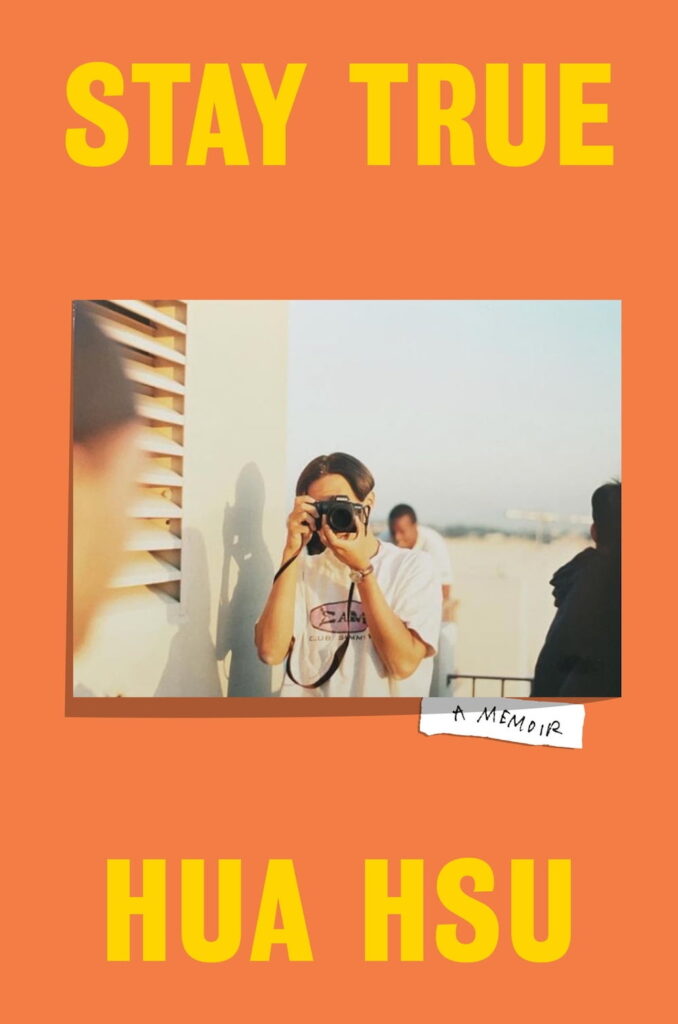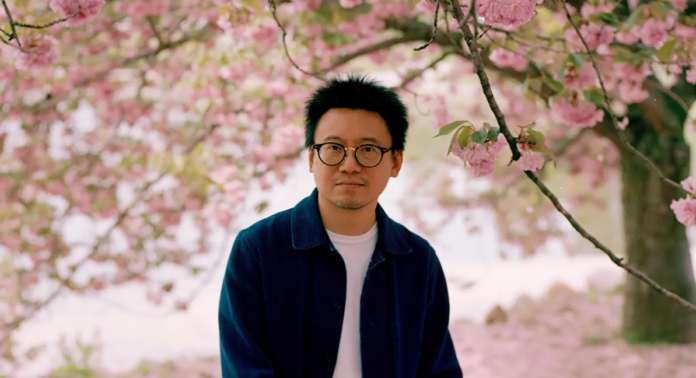Hua Hsu’s Stay True: A Memoir (Doubleday)—a trim 208-page memoir in which the author revisits a friendship he had with a man named Ken while Hsu was a student at UC Berkeley—strikingly recreates the world-defining sensitivity of youth. Some readers of a certain bent, those who’ve passed through the neurotic vortex of life’s coming-of-age period, might veer into cynical dismissal while reading and think, “Get over yourself, the really tough stuff is yet to come.”
But younger readers, and those who can still recall the overwhelmingness of the world through fresher eyes, will grasp onto Hsu’s masterful evocation of a time when everything—parents, peers, lovers, musical and literary preferences, social issues like immigrant assimilation and the commercialization of race—glow with a radical, often bewildering importance. Hsu’s dive into tangled complexities of a relationship between two college kids who are incredibly unalike reverberates with this vital urgency.

Viewed from the perspective of his then-18-year-old self, Hsu includes in the book photos of his and Ken’s lives. The author searches for identity as the son of Taiwanese immigrants, an Asian American born in Illinois and raised in Texas. He attempts to assimilate through wearing cowboy boots, and fostering a preoccupation with the music of Nirvana and Guns & Roses. In Berkeley, he immerses himself in endless hours spent in record shops, pondering obscure philosphers, mirroring punk rock values, reading and creating zines—and through the peculiar, fascinating friendship he forms with Ken, a fellow with whom he appears to have nothing in common except that both are Asian Americans.
Gradually, Hsu and Ken find connection as they fling themselves scattershot along the ridgeline toward adult life, but the bond is both precious and precarious. It becomes all the more so when Ken is fatally shot at 20 years old in Vallejo. The early morning shooting in July 1998 happens after a party Ken hosted in Berkeley—Hsu left early and writes he was at the time “relieved” Ken didn’t phone later that night to go dancing. Soon enough, the bumbling assailants whose attempt at carjacking devolved into murder are apprehended and jailed. Hsu is left to make sense of a senseless tragedy. Was it a hate crime? Could such a horror be random? Was meaning to be found in what had happened, or only coincidence?
Hsu is a staff write for The New Yorker and an associate professor of English at Vassar College. He states in Stay True‘s acknowledgment that he has been writing the book for 20 years, and believes it is the story of being a good friend. Notice he does not say a perfect friend, not even a solid best friend, but someone who in everyday life was available and in his enduring memories, offers something close to immortality to Ken.
Good friendship in Stay True also involves being scathingly honest. Hsu doesn’t excise his initial response to Ken when he writes, “The first time I met Ken, I hated him.” Why? Because Ken was good-looking, easygoing, had a white girlfriend, wore Abercrombie & Fitch clothing as if it was made for his sleek body, and was a fraternity brother at UC Berkeley.
It is marvelous, in light of the young Hsu’s revulsion at anything “mainstream,” to witness on the page the tender friendship that forms through their odd rituals and secrets, and via exposing to each other their vulnerabilities in conversations—almost always with cigarettes in hand. Here, they touch on Black and Asian solidarity, losing one’s virginity, the philosophy of Heidegger, and more. Hsu’s unimaginable grief over the loss of his friend is palpable, even decades later.
Throughout, Hsu’s writing is potent, simultaneously lucid and flush with ambiguity. It is relatable in a way that close readers of all ages might be surprised to find resonant.Brushing aside any cynicism, a person might reflect on coming of age, and recognize that episodes of discovery can happen throughout a life if a person is willing to change and evolve. In Hsu’s skillful hands we witness a senseless tragedy, still raw, through the eyes of a wonderful writer and, above all, a good friend.







